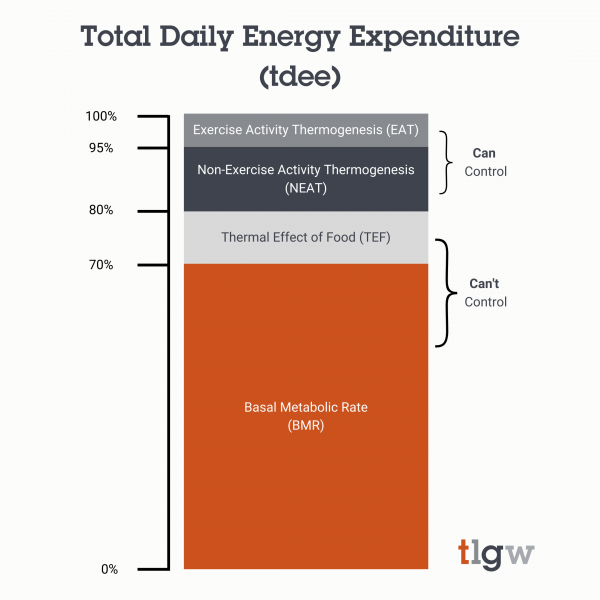Today I want to help you understand one thing and one thing only – The key principle of weight loss, the foundation of it all.
That principle is: Calories In vs. Calories Out, also known as Energy Balance.
Some may say this is an oversimplification, but the principle is simple and that’s exactly how we want things to be! Simple is best.
So what does this mean exactly?
Calories In is the simpler of two and refers to the amount of calories you consume in a day. Although the concept is easy it can be the harder one to control/change due to the numerous factors that influence it eg. culture, affordability, accessibility, beliefs, environment, mindset etc.
Calories Out on the other hand refer to the amount of calories you ‘burn’ or use in a day or total daily energy expenditure (TDEE). This is made up of a few different factors.
- Firstly your Metabolic Rate (BMR) which is what you use for all automatic functions and doesn’t change much.
- Secondly you have the Thermal Effect of Food (TEF) which is the energy used to break down the food itself.
- Then you have Non-Exercise Activity Thermogenesis (NEAT) also known as incidental exercise such as walking, standing, climbing stairs etc.
- Lastly there’s your Exercise Activity Thermogenesis (EAT) which is your planned exercise/activities.
Out of these four only your NEAT & EAT are in your control and can be changed or influenced. Combined however they only equate to roughly 15-20% of the energy you use each day.
How does this affect your body weight?
When you consume more calories than you use, you will gain weight.
When you consume the same calories as you use, you will maintain your weight.
When you consume less calories than you use, you will lose weight.
Simple right! So why can it be so hard to lose weight? Like previously mentioned, just because the principle is simple doesn’t mean achieving it is. It’s the process that is challenging and it takes a lot of trial and error to get it right. But understanding this principle is the first step in the right direction.
Here are some more important factors to consider:
- Any and all diets are all trying to achieve this one principle, the ones that help you achieve a calorie deficit consistently are the ones that are successful. This means there is not ONE diet or way of eating that is best, it is what is best for you.
- If you’re struggling to lose weight it means that whatever you are doing isn’t getting you into a sustained calorie deficit and that your method needs to be reviewed.
- Elements such as carbs, hormones and deficiencies etc don’t stop you from losing weight directly, they instead affect your energy balance equation. As an example, If you feel bloated and tired after a heavy carb meal then you are less likely to move and be active, reducing your energy output. It’s not that the carbs stop you from losing weight, instead it reduces your energy output which takes you out of a calorie deficit and puts you into a calorie surplus.
Nathan Spring






Pingback: The Nutrition Pyramid - The Local Gym Woombye